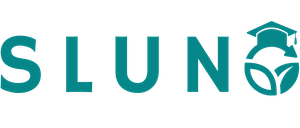

Date: March 14-15, 2024
Venue: Business and Technology University, Tbilisi, Georgia.
On March 14-15, 2024, the University of Business and Technology in Tbilisi hosted the Sustainable Lifestyles Round Table, under the auspices of the United Nations Environment Programme (UNEP). The event brought together teaching staff, master's and doctoral students from Central Asia and South Caucasus, experts in sustainable development, environmental research and education, NGOs and international organizations to discuss contemporary challenges and solutions in the field of sustainable development.
The roundtable focused on the role of educational institutions in promoting sustainable living. In the context of a growing population and resource scarcity, participants considered ways to integrate sustainable practices into the university environment and business. The main focus was on the introduction of "green nudges" - practical tools and methodologies aimed at reducing the carbon footprint and developing a circular economy.
On the first day, participants were introduced to UNEP approaches to sustainable lifestyles, discussed the principles of behavioral economics and the introduction of "green nudges". Mini-lectures, group discussions and interactive sessions were held, which allowed participants to study successful practices and exchange experiences with each other.
The second day was devoted to generating ideas and developing an action plan for the further development of sustainable practices in universities in the region.
The event contributed to improving the understanding of sustainable lifestyle concepts among universities in Armenia, Azerbaijan and Georgia. Participants also got acquainted with the results of the analysis of needs and gaps in sustainable development education and expressed interest in joining the Sustainable Lifestyles University Network (SLUN).
The round table was an important step towards expanding the SLUN network to the countries of the South Caucasus and contributed to strengthening network interaction between universities and international organizations in the field of promoting sustainable practices in the educational environment.